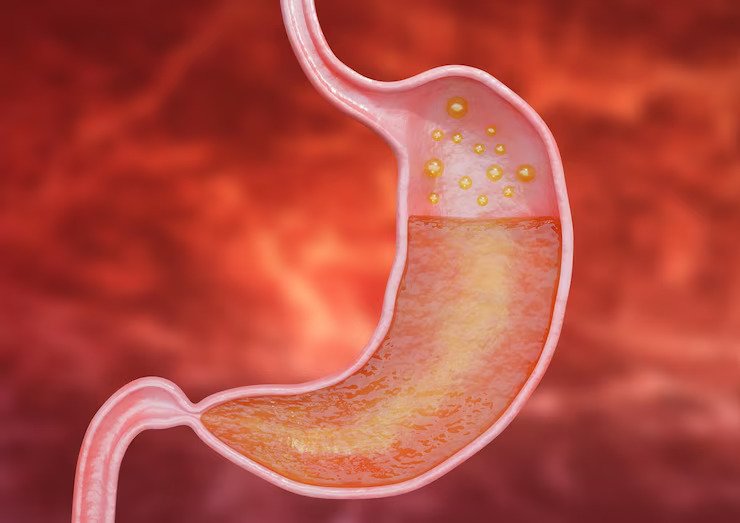Stomach cancer, also known as gastric cancer, remains a significant global health challenge, contributing to substantial morbidity and mortality worldwide. While treatment options for stomach cancer have traditionally included surgery, chemotherapy, and radiation therapy, recent advances in research have led to the development of innovative therapies and treatment modalities that hold promise for improving outcomes for patients. In this article, we will explore some of the latest advancements in stomach cancer research, including emerging therapies and novel treatment approaches.
Immunotherapy: Unleashing the Power of the Immune System
One of the most promising areas of research in stomach cancer treatment is immunotherapy, which harnesses the body’s immune system to target and destroy cancer cells. Immune checkpoint inhibitors, such as pembrolizumab and nivolumab, have shown encouraging results in clinical trials for advanced stomach cancer. These drugs work by blocking proteins that inhibit the immune response, allowing the immune system to recognize and attack cancer cells more effectively. While immunotherapy is not yet a standard treatment for all stomach cancer patients, ongoing research aims to identify biomarkers that can predict which patients are most likely to benefit from this approach.

Targeted Therapy: Precision Medicine for Stomach Cancer
Another area of advancement in stomach cancer treatment is targeted therapy, which involves the use of drugs that specifically target molecular abnormalities driving cancer growth. For example, trastuzumab, a targeted therapy that inhibits the HER2 protein, has been shown to improve outcomes for patients with HER2-positive stomach cancer when combined with chemotherapy. Additionally, research is ongoing to identify other molecular targets in stomach cancer, such as mutations in the MET gene, which could lead to the development of new targeted therapies tailored to individual patients’ tumor profiles.
Minimally Invasive Surgery: Improving Outcomes and Recovery
Advancements in surgical techniques have also played a significant role in improving outcomes for stomach cancer patients. Minimally invasive approaches, such as laparoscopic and robotic-assisted surgery, offer several advantages over traditional open surgery, including smaller incisions, reduced blood loss, and faster recovery times. Studies have shown that minimally invasive surgery for stomach cancer is associated with comparable oncologic outcomes and lower rates of postoperative complications compared to open surgery. As a result, these techniques are increasingly being adopted by surgeons worldwide, leading to improved patient outcomes and quality of life.
Liquid Biopsies: A Non-Invasive Approach to Cancer Detection and Monitoring
Liquid biopsies, which involve the analysis of circulating tumor DNA (ctDNA) in the blood, represent a promising approach to cancer detection and monitoring in stomach cancer. Unlike traditional tissue biopsies, which can be invasive and challenging to obtain, liquid biopsies offer a non-invasive means of detecting genetic mutations and monitoring treatment response over time. By analyzing ctDNA, clinicians can gain insights into tumor heterogeneity, track the emergence of treatment-resistant mutations, and adjust treatment strategies accordingly. While liquid biopsies are still being evaluated in clinical trials for stomach cancer, they have the potential to revolutionize the way the disease is diagnosed and managed in the future.
Combination Therapies: Maximizing Treatment Efficacy

In recent years, researchers have increasingly focused on developing combination therapies that target multiple pathways involved in stomach cancer growth and progression. For example, clinical trials are investigating the combination of chemotherapy with targeted agents, immunotherapy, or radiation therapy to achieve synergistic effects and improve treatment outcomes. Additionally, studies have shown that combining different types of immunotherapy or targeting multiple immune checkpoints simultaneously may enhance the anti-cancer immune response and overcome resistance to single-agent therapy. As research in this area continues to evolve, combination therapies are likely to play an increasingly important role in the treatment of stomach cancer.
Conclusion
In conclusion, recent advances in stomach cancer research have led to the development of innovative therapies and treatment modalities that hold promise for improving outcomes for patients. From immunotherapy and targeted therapy to minimally invasive surgery and liquid biopsies, these advancements represent significant strides in our understanding and management of this challenging disease. As ongoing research continues to uncover new insights into the molecular mechanisms driving stomach cancer, the future holds great promise for further advancements in treatment and ultimately, improved outcomes for patients affected by this devastating condition.
For any further queries, Plz visit drmonishagupta.com or you can check our social media accounts, Facebook, Instagram


